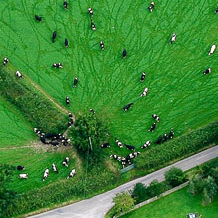- Home
- About the alliance
- Key researchers
- News
- Events
- Case studies
- Climate science: wheat can’t stand the heat
- Controlling major diseases of world crops
- Farming to feed the nation
- Food security in early modern England
- Healthy Food from Healthy Animals
- Helping UK wheat breeders through genomics
- Impacts of agriculture on greenhouse methane capture by soils
- Livestock can produce food that is better for people and the planet
- Managing sheep scab
- Parasitoid webs in organic and conventional farming systems
- Positively managing ecosystems to increase their service value
- Predicting and protecting our pollinators
- Promoting sustainable food consumption and production
- Putting a stop to pain and distress in farm animals
- Seagrass and food security
- Technology to improve water usage efficiency
- The 'push-pull' cropping system
- The North Wyke Farm Platform
- Towards sustainable agriculture
- Transparency of food prices
- Yes we (may) have no bananas
- South West Biosciences Doctoral Training Partnership
- Contact us

Biodiversity on farm land.
Parasitoid webs in organic and conventional farming systems
University of Bristol
Researchers: Jane Memmott and Bill Symondson (University of Cardiff)
Funder: BBSRC
A project comparing the biodiversity and pest control on 10 organic farms and 10 conventional farms is being undertaken by The University of Bristol. The intensification of arable agriculture over the last 50 years has been associated with substantial losses of biodiversity.
There is widespread belief among conservationists, the general public and politicians that low yielding organic agricultural systems are host to higher levels of biodiversity and are more sustainable than high-yielding farming systems. However, the organic industry has been the subject of a number of serious critiques of its methods, which all point to the lack of a scientific basis underpinning the organic farming method.
For each of our 20 farms the team sampled plants and insects and used this information to construct food webs describing the interactions between plants, plant-eating insects including pest species, and naturally occurring biological control agents (small parasitic wasps).
Overall they found 374 plant, 370 herbivore and 193 parasitoid species on the 20 farms, which were linked together in complex food webs. There were more species in the food webs on the organic farms.
The team, lead by Professor Jane Memmott, tested the efficiency of the pest control service on the two types of farm by using a field experiment, and found that there was no difference in the average level of pest control on the two types of farm, but that organic farms are likely to provide a more reliable pest control service.
Understanding how the pest control food web is structured and how it functions in different farming systems will provide agroecologists with the information needed to conserve, manage and sustainably use this ecosystem service.


